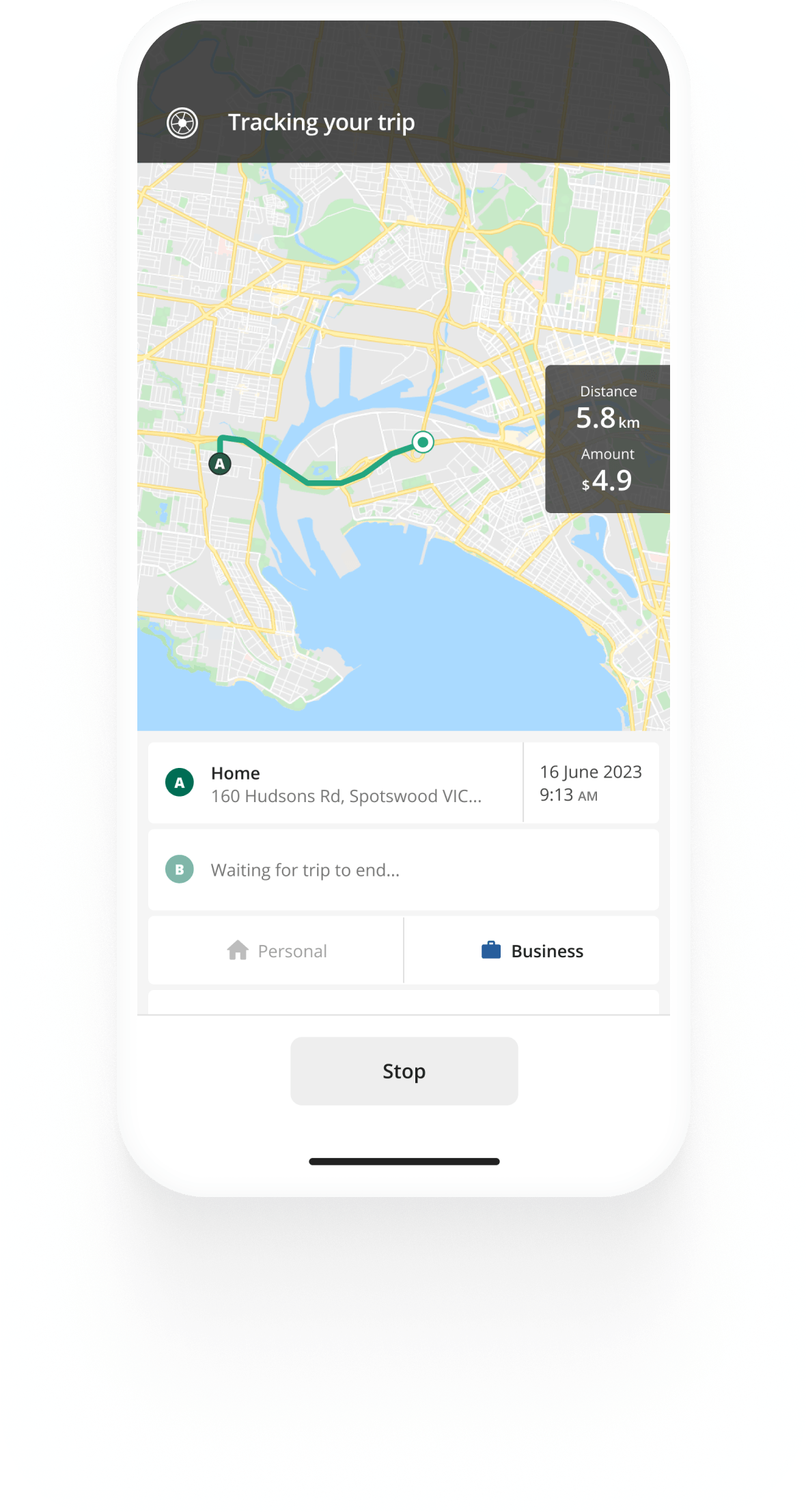Track mileage automatically
Get started
Car Allowance vs Company Cars - Which Is Best for Your Company?
Employers can choose to use one of two methods of providing a car for their employees; a car allowance or a company car. This is a complex aspect of tax law in Australia, and there are significant differences in how company car tax works compared to a car allowance.
Providing company cars
A company car is a vehicle that is owned by the employer and may be provided to an employee for their private use as well as business use.
The employer is responsible for all of the expenses incurred for the ownership of that vehicle, which can then be claimed as a tax deduction. The employee, however, cannot then claim any expenses related to that vehicle paid for by their employer.


Kilometre tracking made easy
Trusted by millions of drivers
Automate your logbook Automate your logbook

Automatic mileage tracking and ATO-compliant reporting.
Get started for free Get started for freeProviding car allowances
A car allowance is an amount paid to an employee as part of their salary package intended to cover the cost of using their personal car for work. It becomes taxable income for the employee, who can then claim car expenses incurred for work using either the logbook method or the cents per kilometre method.
Find out how employees can claim work-related car expenses in our guide.
The pros – car allowance vs company cars
A car allowance generally gives greater flexibility to the employee in terms of the kind of car they own or purchase, whether to lease or purchase a vehicle outright or even choose to buy a second-hand car. The employee can then claim running expenses associated with using their car for business purposes as a tax deduction.
When a company car is offered as part of the employee’s package, their taxable income may be reduced as the costs of owning and running the vehicle are borne by the company instead of the employee.
The cons – car allowance vs company cars
With a car allowance, the employee is responsible for all running costs incurred with their vehicle. Personal usage costs are not claimable as a tax deduction, which may result in a higher taxable income for the employee if a generous car allowance is offered as part of their salary package.
Providing company cars obliges you as the employer to cover all fixed and running expenses for them, including maintenance, insurance, fuel etc. Of course, any personal usage from employees will be considered a benefit for them and should be added to their income. Additionally, you may have to deal with paying Fringe Benefit Tax.
Which option is the right one for your company?
In today’s market, a car allowance is far more likely to be offered to employees than a company car when using the car predominantly for private use. Fringe Benefits Tax (FBT) is applied at a rate of 47% to any private use, which can increase the cost to the employer significantly. Employee contributions can be used to offset FBT.
It is cheaper for a company to pay a generous car allowance to an employee if they are earning below the highest tax bracket and using the car predominantly for private use. If you are earning a salary above $180,000, then the tax rate is the same as FBT. Providing a car allowance vs a company car is a balance between paying the employee a higher taxable income or the employer paying more tax.
FAQ

Tired of logging mileage by hand?
Effortless. ATO-compliant. Liberating.
Top posts
- Driversnote vs GOFAR
- Work-Related Travel Expenses for Employees
- Sole Trader Tax Deductions: An Essential Guide
Related posts
ATO Mileage Guide
Latest update: 23 June 2025 - 5 min read
Learn about the rules of reimbursing employees for their car expenses or deducting expenses as an employee or self-employed individual.
Driversnote vs GOFAR
Latest update: 2 February 2026 - 10 min read
Compare Driversnote and GOFAR in 2026. See which logbook app is best for ATO compliance, ease of use, privacy, and everyday driving needs.
Work-Related Travel Expenses for Employees
Latest update: 16 January 2026 - 2 min read
Learn about the ATO rules on work-related travel expenses and see if they are reimbursable or deductible at tax time in Australia.


